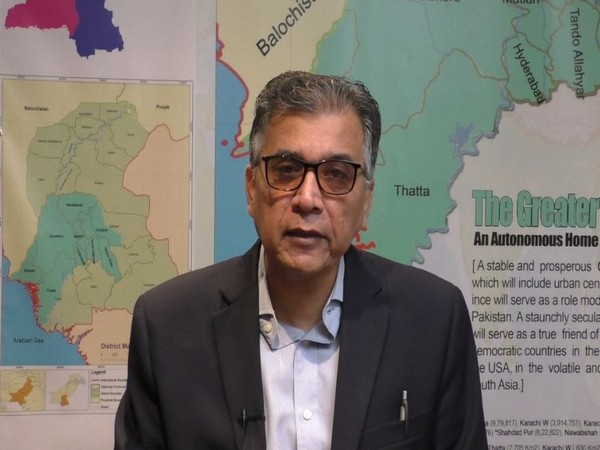VoK demands Parliament for 'Greater Karachi'
US-based advocacy group Voice of Karachi (VoK) released the main features of the proposed constitution for 'Greater Karachi', demanding the formation of a Parliament for the region, amongst other things.

- Country:
- United States
US-based advocacy group Voice of Karachi (VoK) released the main features of the proposed constitution for 'Greater Karachi', demanding the formation of a Parliament for the region, amongst other things. The statement was rolled out by the group on the eve of Pakistan's 72nd Independence Day.
"It is now evident beyond any reasonable doubt that Karachi and other urban areas in Sindh cannot expect justice in the current administrative set up of Pakistan and deserve a separate, autonomous status. The Greater Karachi plan that Voice of Karachi has proposed is the only viable and plausible solution that could resolve the longstanding grievances of urban Sindh. It is also the only solution to bring lasting peace in the city," a VoK statement read. VoK's chairman Nadeem Nusrat explained the salient features of the proposed constitution for the region and said, "This autonomous region will be an integral part of Pakistan where the Federation will have full control over the country's foreign, defence and fiscal policies..."
"The Greater Karachi, which will include most urban areas of Sindh, will have its parliament headed by a chief executive who will be directly elected by the region's voters. The Greater Karachi Parliament will only deal with critical legislative matters about the region. Its members will neither have the powers to elect the region's chief executive (chief minister) nor will they have access to discretionary development funds," he added. The chairman said that this will eliminate the root cause of corruption and horse-trading.
"All administrative issues such as law and order, education, health, sanitation, housing, town planning, and transport will be under the control of town's elected local government, as is the case with every developed country where the local governments are empowered to look after all civic issues," he added. "Nadeem Nusrat reminded everyone that the demand for the creation of Greater Karachi is the direct result of racist policies of Sindh's corrupt and backward landed elite. This rural oligarchy has deliberately deprived the province's Mohajir population of their fundamental human rights through measures similar to the Jim Crow Laws such as quota system and disenfranchisement," the statement continued.
"Karachi's taxes have been running the province's economy - rural areas contribute less than 5 per cent taxes to provincial revenue - but this racist lot has never allowed a Mohajir to become the province's chief minister," it said. The group expressed concerns that urban Sindh's "unemployed, frustrated youth" could fall in the trap of extremist religious groups which are operating in the region.
"In the wake of (terror group) ISIS's recent announcement in which it vowed to make Pakistan its next bastion of power, this is a dire situation and requires urgent action," the statement added while highlighting its proposal. Nusrat added that Pakistan's "ever-deepening economic crisis, political infighting, foreign policy failures, growing international isolation, and ethnic conflicts" are ample evidence to prove that Pakistan's current constitutional and political structure is a "complete failure".
"The increasing ethnic unrest also proves that the demand for the creation of 'autonomous states' made in the 1940 Lahore Resolution was the best governing solution for an ethnically divided region such as Pakistan. The time has finally come to honour the real aspiration of Pakistan's founding fathers and create multiple constituent states within Pakistan. Autonomous Greater Karachi along with autonomous KPK, Balochistan, Gilgit, Baltistan, Punjab, and rural Sindh will make Pakistan both viable and stable," he said. The US-based group works towards raising global awareness about the systematic political, economic, social and educational persecution of millions of ethnic Urdu-speaking Mohajirs whose majority lives in Pakistan's Sindh Province. Mohajirs are the descendants of those who had migrated to Pakistan from India after the partition of 1947. (ANI)
(This story has not been edited by Devdiscourse staff and is auto-generated from a syndicated feed.)
ALSO READ
22 cases of forced disappearances reported in March in Balochistan: Report
Pakistan's human rights body urges action to end decades-long pattern of enforced disappearances in Balochistan
First UN food supplies arrive in Sudan's Darfur after months but millions face acute hunger
Congress lays 'nyay thrust' in Lok Sabha poll manifesto, gives push to jobs; makes promises for women, youth, farmers, poor
UAE: Sustainability, unity and youth take centre stage at opening ceremony of Gulf Youth Games










